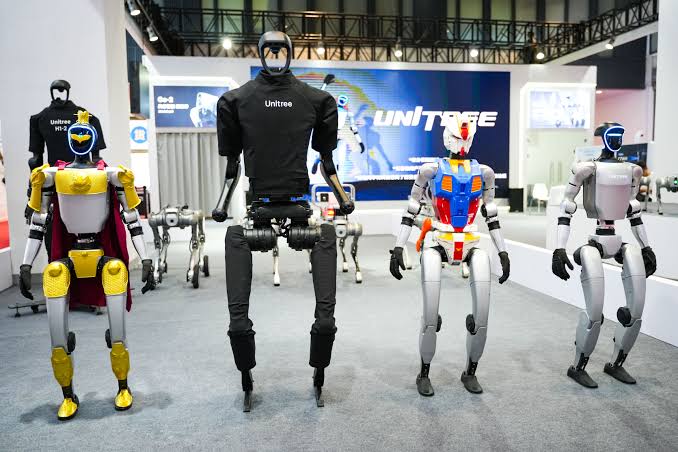In a whirlwind of technological breakthroughs, the past few days have showcased remarkable advancements across artificial intelligence, quantum computing, and robotics, signaling a transformative era for science and industry.
China’s unveiling of the Zuchongzhi-3 quantum computer, a 105-qubit machine, stands out as a milestone.
This processor reportedly performs calculations one million times faster than Google’s leading supercomputer, leveraging high-precision qubit operations to tackle problems previously deemed intractable, with profound implications for cryptography, drug discovery, and climate modeling.

Parallel to this, a new AI agent named Manus has emerged, captivating attention for its ability to automate up to 50 tasks simultaneously, from financial transactions to research, potentially outstripping China’s earlier DeepSeek model.
Robotics has also seen a surge, with Unitree Robotics open-sourcing its G1 humanoid robot’s algorithms and hardware, accelerating innovation in the field.

Meanwhile, Luma AI’s Ray2 Flash model now generates realistic videos three times faster and cheaper, benefiting creators, while AI-generated classical sheet music demonstrates stunning quality, opening new creative frontiers.
OpenAI’s announcement of a $20,000/month PhD-level AI agent for specialized tasks like academic research and software development underscores the commercialization of advanced AI.
Google’s integration of Gemini-powered AI into Search offers conversational, AI-driven answers, reshaping user experiences. Alibaba’s QwQ-32B, with only 32 billion parameters, outperforms larger models like DeepSeek-R1 in mathematical and scientific reasoning, while Mistral AI’s Mistral OCR enhances document understanding for RAG systems.

Anduril’s Barracuda-500, a precision autonomous weapon, and PNDbotics’ viral Adam Robot, with human-like balance, highlight AI’s expanding role in defense and entertainment. Finally, AI-powered ads demonstrate creative efficiency, saving time and resources.
These developments, unfolding in 2025—designated the International Year of Quantum Science and Technology—promise to redefine technology’s future.
